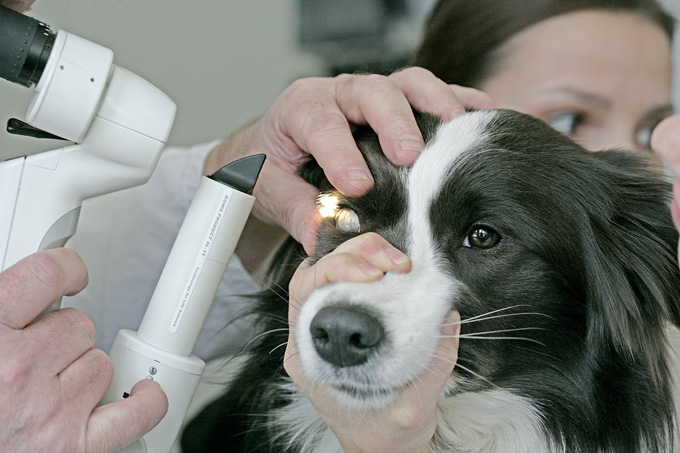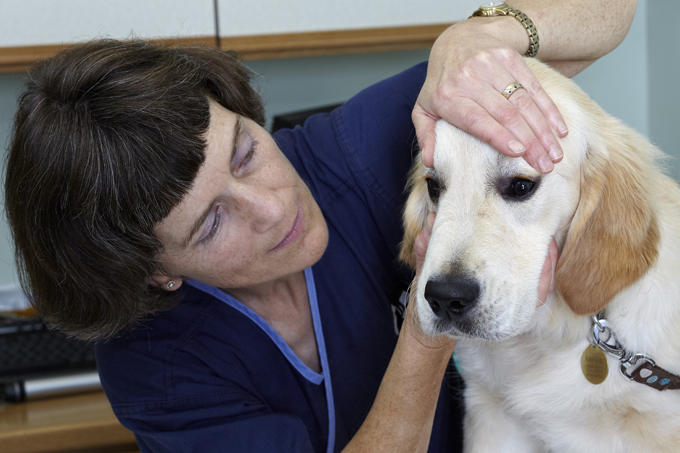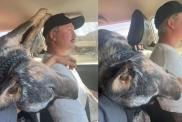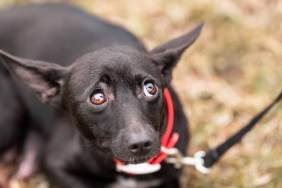Nearly 1 in 5 Americans is currently living with a disability, and a great number rely on the support, friendship, and aid of a certified service animal. It is estimated that anywhere from 15,000 to 20,000 service animals are currently active in the U.S.
(Picture Credit: Getty Images)To honor the essential work service animals do every day, the American College of Veterinary Ophthalmologists (ACVO) has partnered with leading animal health company Merial again this year for the Annual ACVO/Merial National Service Dog Eye Exam Event.
During the annual May event, board certified veterinary ophthalmologists will provide free eye exams to qualifying service animals, screening for visual impairments, and other serious eye conditions that could hinder the animal’s ability to aid his or her person and decrease the animal’s quality of life. Specialists will screen for things like redness, irritation, retinal disease, cataracts, cloudy corneas, and other eye abnormalities.
More than 250 veterinary ophthalmologists from across the United States, Puerto Rico, and Canada will be donating their time and services to help make this wonderful event a rousing success.

The event continues to grow, with more specialists and more registered service animals taking part each year. Since the first ACVO/Merial National Service Dog Eye Exam Event was held in 2008, over 16,000 service animals have received sight-saving screenings.
Response from the public has been overwhelmingly positive, and many service animals have benefited from receiving a free eye exam as part of the annual event. While dogs are the most common service animal to have received a free exam during this event, cats, horses and even a service donkey named Henry have been able to take advantage of this wonderful program.
Golden Retriever Quincy helps his owner Sandra Ball take off her shoes, push buttons, and fetch the telephone. During a routine screening during the ACVO/Merial National Service Dog Eye Exam Event, doctors discovered Quincy was suffering from a very serious condition called Golden Retriever Uveitis, a hard-to-detect condition that often results in devastating vision loss. Without the free exam Quincy received, he might not have been able to start treatment and likely would have lost his sight.
Eric Darling has brought his search and rescue dog Ben, a black American Field Labrador who can climb a ladder three stories high, to the ACVO/Merial event for vision screenings two years in a row. Darling believes that while the service is free to participants, its value is priceless.
“Catching something early is huge,” Darling says. “This event ensures that we have the opportunity to get this exam done, with no excuses.”
Several years ago, a seeing-eye dog named Qwest was diagnosed with an optic nerve tumor by a participating ophthalmologist. Though Qwest’s condition was ultimately incurable, specialists were able to both give Qwest more time and provide him with end-of-life care while his owner had time to mourn Qwest and arrange for a new service animal.
If you have an active service animal who is either licensed or is currently completing a formal training program from through an organization and will earn his or her license soon, your animal should be eligible to participate. Those interested in registering for annual ACVO/Merial National Service Dog Eye Exam Event should do so via the event website. Interested registrants must apply online before contacting and making an appointment with a participating veterinary ophthalmologist. Visit the event website for more information.









